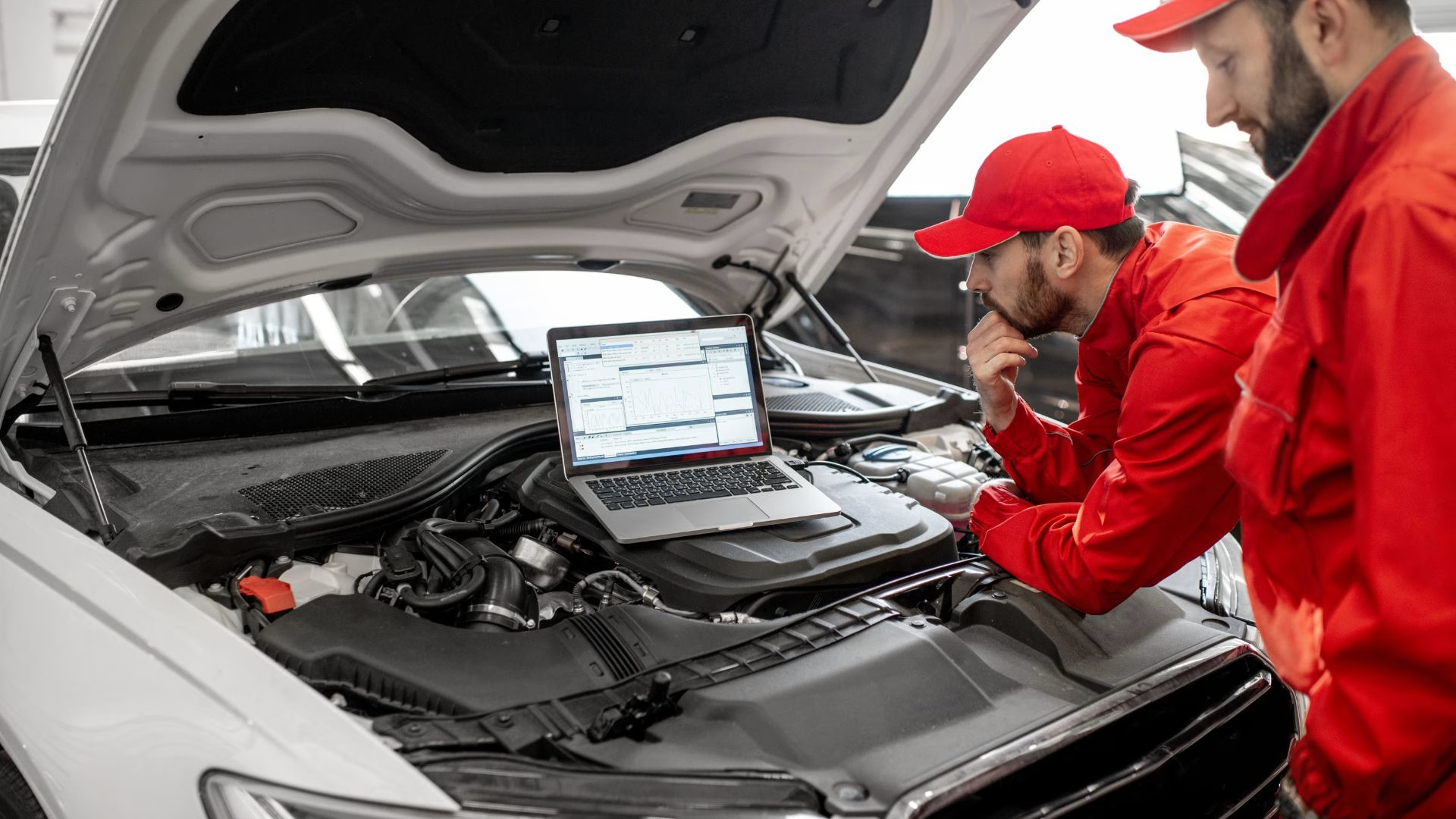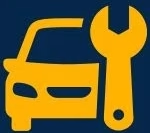
When customers come to me asking, “Why do I need an engine diagnostic test?” or “Is it really worth the cost?” I always start by sharing this truth: an engine diagnostic test is the single most effective way to identify hidden issues in your vehicle before they escalate.
An engine diagnostic test is the ultimate tool to detect problems in your car’s engine before they worsen. By connecting specialized equipment to your vehicle’s computer system, this test identifies issues ranging from minor sensor malfunctions to potential costly repairs, like a failing catalytic converter or transmission.
Whether it’s a persistent check engine light, a sudden drop in performance, or that nagging feeling something isn’t right, this test can pinpoint problems that would otherwise go unnoticed. Trust me, as someone who has dealt with hundreds of such cases, the insights it provides are invaluable.
What is an Engine Diagnostic Test?
Put simply, an engine diagnostic test is like a health checkup for your car’s engine. Using specialized equipment, such as an advanced engine diagnostic tester or an OBD-II (On-Board Diagnostics) scanner, it connects to your vehicle’s computer system to scan for errors. These errors can range from emissions issues to oxygen sensor malfunctions or catalytic converter problems.
During my years at Arnone’s Car Care, I’ve seen how vital this process is. For example, one customer came in last year with rough idling and hesitation during acceleration. A quick scan revealed a faulty oxygen sensor impacting the fuel-air mixture. A $200 fix prevented what could have turned into $1,500 in catalytic converter damages.
For persistent mechanical issues, tools like engine diagnostics often complement solutions we provide with an engine rebuild, ensuring your system runs optimally even after critical repairs.
Why Perform an Engine Diagnostic?
It’s not just about turning off the check engine light. An engine diagnostic can uncover specific information, such as:
1. Transmission Issues
A struggling transmission can often show signs of overheating or gear-shifting delays. I remember diagnosing a 2012 Toyota Camry where the customer complained of slipping gears. The data confirmed low transmission fluid levels, a problem solved for under $400 instead of needing a costly overhaul later.
2. Catalytic Converter Health
Regular tests detect inefficiencies in the catalytic converter, which can cost upwards of $2,000 to replace. Thanks to these diagnostics, I’ve helped prevent dozens of such expensive repairs by detecting and addressing worn ignition coils or faulty sensors early.
3. Exhaust System Leaks
With a diagnostic, I’ve pinpointed minor exhaust leaks or defective sensors affecting emissions performance. These small fixes reduce environmental impact and avoid fines during inspections.
4. Electrical System Glitches
Testing highlights electrical faults like dead sensors or a reluctant alternator. Recently, we had a case where diagnostics narrowed the issue to a sensor malfunction caused by a dirty air filter, leading to poor performance. Fixing this significantly improved the car’s efficiency.
From a professional perspective, engine diagnostics save both time and money by eliminating guesswork in troubleshooting. They’re like a map leading me directly to the issue.
How Much Does an Engine Diagnostic Test Cost?
This is one of the most common questions I get, both in person and from online forums like Reddit and Quora. Right now, the cost varies depending on the complexity of the issue and where you go.
- Base Costs: Many auto parts stores offer basic code reading for free. However, these are minimal and often don’t provide the depth of information you need.
- Professional Diagnostics: Prices range from $100 to $200 for a scan performed by a trained mechanic with advanced tools. More complex issues requiring manual inspection and labor may push costs closer to $250.
For perspective, a customer recently asked if $250 for diagnostics was overpriced when their oil pressure switch failed. I assured them it’s a fair price given the time, technology, and expertise involved. At Arnone’s, we prioritize transparency by offering detailed written estimates before any repairs begin. Your engine’s health—not upfront savings—is what really matters.
Why Choose a Professional Diagnostic Test?
While you can buy a handheld diagnostic tester for as little as $50 to $100, the real value lies in a professional diagnosis. Here’s why:
1. Advanced Equipment
Expert analysis uses bidirectional tools that can scan deeper than basic OBD-II codes. For example, our diagnostics services at Arnone’s help track real-time data like fuel trim and sensor voltage, delivering fine-tuned insights that generic code readers can’t.
2. Experience and Skill
Over-the-counter devices won’t tell you why the issue happened or why that engine code is appearing. For example, misfiring might be due to spark plugs, low compression, or an injector issue. My role as a trained technician is to interpret that data and find the exact problem.
3. Comprehensive Reports
Beyond immediate fixes, we document everything to track patterns, such as recurring misfire codes, which could signal deeper engine problems down the road. It’s about both solving and preventing issues.
Sometimes prolonged negligence leads to issues like engine knocking sounds, which could have been prevented with early diagnostics.
My Personal Experience with Customers
For me, engine diagnostics are more than just a technical process. They represent trust. I like to share the story of a young customer who drove in with their first car, a Dodge Neon. They worried about a flashing check engine light and feared expensive repairs. After running a diagnostics test, I found a simple ignition coil problem, costing just $120 to repair. The customer was both relieved and thrilled, and their gratitude is why I keep doing what I do.
Another time, a repeat customer came in after being quoted $800 elsewhere to fix an “emissions issue.” Using our diagnostic process, we identified their catalytic converter was fine, and the true cause was just a $20 gas cap that hadn’t sealed properly. Moments like these prove the difference proper diagnostics can make.
When Should You Get an Engine Diagnostic Test?
From my professional experience, you should consider a diagnostic test for the following scenarios:
- Your check engine light is on (especially if it’s flashing).
- You notice drivability issues like stalling, hesitation, or a rough idle.
- After you’ve purchased a used car to ensure there are no hidden engine problems.
- Periodically, as part of preventive maintenance to uncover developing issues.
If stalling becomes frequent, it could be a sign of deeper troubles. Learn more about precautions and fixes from our section on engine stalling.
Engine Acting Up? Get Fast, Reliable Diagnostics
If you’re experiencing engine issues or notice that dashboard light glaring at you, don’t wait it out. Schedule your engine diagnostic test today. At Arnone’s, my team and I are ready to ensure your car receives the expert care and relaible services it deserves. Call us now at (816) 471-8560 to schedule your appointment or drop by our shop during weekdays!






